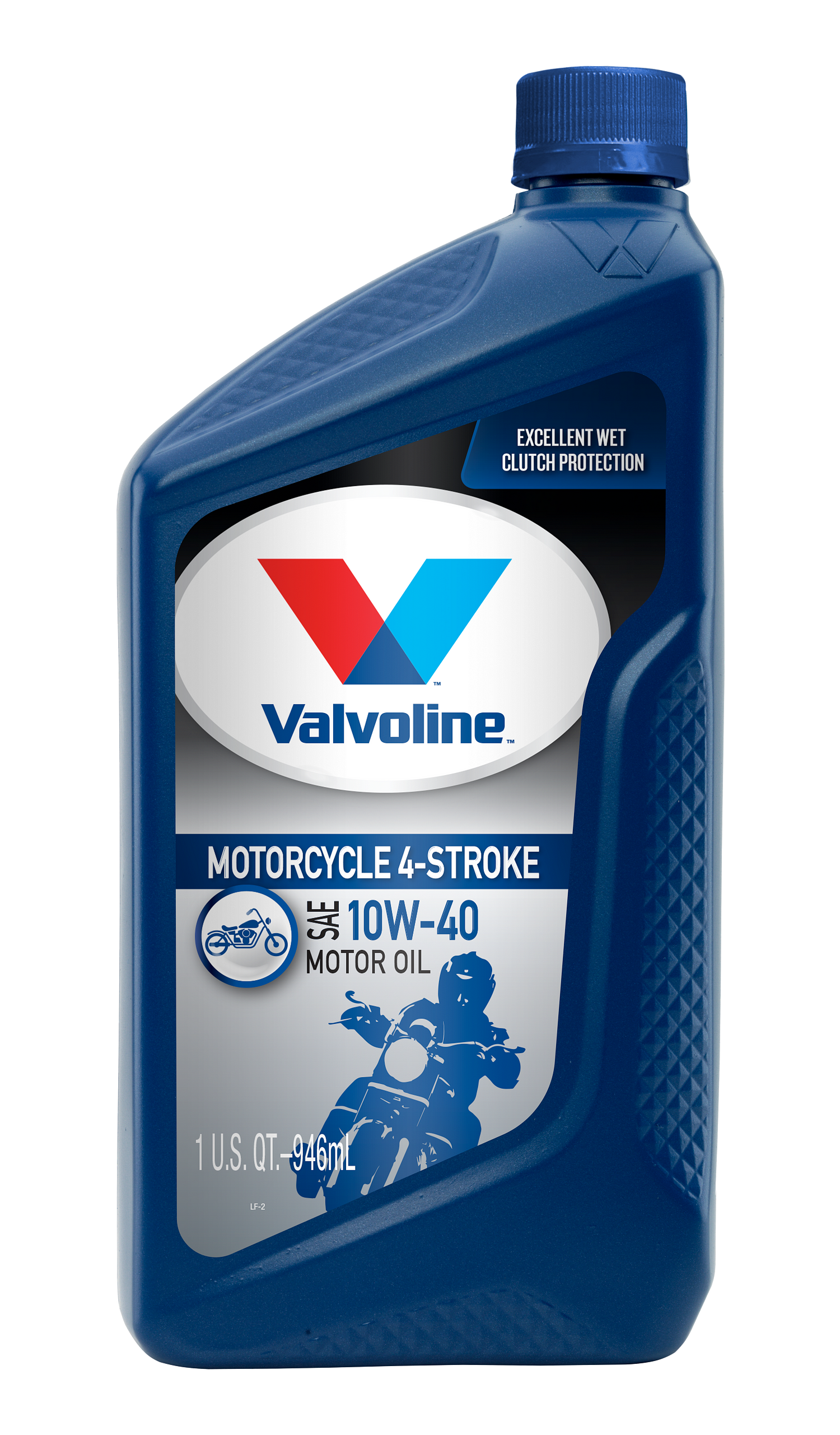Car oil is not compatible with a 4-stroke motorcycle due to different viscosity and additives. Mixing oils can harm the engine.
Using car oil in a 4-stroke motorcycle can cause engine damage and affect performance. Motorcycle engines have specific oil requirements, including viscosity and additive compositions, which differ from car engines. It’s crucial to use motorcycle-specific oil to ensure optimal performance and longevity of the engine.
Understanding the compatibility of oils with different vehicles is essential to maintain their efficiency and prevent unnecessary mechanical issues. In the following sections, we’ll delve deeper into the specifics of motorcycle oil requirements and the potential consequences of using incompatible oils. By the end, you’ll have a comprehensive understanding of why using car oil in a 4-stroke motorcycle is not recommended.

Credit: www.amazon.com
Understanding Car Oil
When it comes to understanding car oil, it is important to know that car oil is a lubricant designed for use in automotive engines to reduce friction and wear.
Composition Of Car Oil
Car oil is composed of base oils and additives that work together to lubricate and protect the engine components.
- Base oils provide the primary lubrication and thermal stability.
- Additives enhance the performance of the oil by improving viscosity, reducing oxidation, and preventing deposits.
Viscosity And Additives
The viscosity of car oil determines its flow characteristics at different temperatures, with lower viscosity oils being thinner and flowing more easily.
- Additives in car oil play a crucial role in improving performance, such as anti-wear agents, detergents, and dispersants.
- Proper viscosity and additives are essential for the oil to provide adequate lubrication and protection to engine components.

Credit: www.amazon.com
Understanding Motorcycle Oil
Motorcycle oil is a crucial component in ensuring the smooth functioning and longevity of a 4-stroke motorcycle engine. It plays several essential roles, such as lubricating the engine parts, reducing friction, cooling down the engine, and even cleaning the engine. However, it’s important to understand that motorcycle oil has specific requirements and key differences from car oil.
Specific Requirements
Motorcycle oil needs to meet specific requirements set by the manufacturers to ensure optimal engine performance. These requirements include the right viscosity, or thickness, of the oil, as well as the compatibility with wet clutches. Unlike car engines that have separate oil compartments for the engine and transmission, many motorcycles use a shared sump, meaning the oil also needs to lubricate the clutch. Using the wrong type of oil can cause clutch slippage and lead to potential damage to the engine and transmission.
Additionally, motorcycle oil needs to withstand higher engine temperatures and shearing forces. The high RPMs and intense engine heat generated by motorcycles demand an oil that can withstand these challenging conditions. Therefore, it is crucial to use oil specifically formulated for motorcycles to ensure proper lubrication and protection.
| Specific requirements of motorcycle oil: |
|---|
| Appropriate viscosity for the engine and wet clutch |
| Resistance to high engine temperatures and shearing forces |
| Compatibility with wet clutches |
Key Differences From Car Oil
While car oil and motorcycle oil may appear similar at first glance, there are significant differences in composition and performance. One of the main differences is the presence of friction modifiers in car oil. These additives help improve fuel economy, something that is less significant in motorcycles due to their small fuel tanks and different engine characteristics.
Furthermore, motorcycle oil contains additives that are specifically designed to handle the demands of motorcycle engines. These additives provide increased protection against oxidation, corrosion, and wear, which are commonly faced by motorcycles due to their exposure to various weather conditions and lower mileage compared to cars.
In addition, motorcycle oil also tends to have higher zinc and phosphorus content compared to car oil. These additives are important for protecting the engine’s valvetrain components, especially in older motorcycles with flat tappet designs.
- Differences between motorcycle oil and car oil:
- No friction modifiers
- Specialized additives for increased protection
- Higher zinc and phosphorus content for valve protection
Compatibility Issues
When it comes to maintaining the performance and longevity of a motorcycle, using the right type of oil is crucial. The compatibility of car oil with a 4-stroke motorcycle can lead to various issues that riders need to be aware of. Understanding the effects, potential damage, and wear that can result from using car oil in a motorcycle is essential for ensuring the optimal functioning of the engine.
Effects Of Using Car Oil In A Motorcycle
Using car oil in a 4-stroke motorcycle can have detrimental effects on the engine’s performance. Incompatible viscosity can lead to increased friction and overheating, causing reduced fuel efficiency and accelerated wear on critical engine components. Additionally, certain additives present in car oil may not meet the specific requirements of motorcycle engines, potentially leading to deterioration of seals and gaskets and clutch slippage.
Potential Damage And Wear
The use of car oil in a motorcycle can result in potential damage and wear to vital engine parts. Insufficient lubrication due to the wrong viscosity can lead to premature engine wear, increased heat, and friction-related damage. The engine’s internal components, such as pistons, valves, and camshaft, may experience accelerated wear and reduced longevity, ultimately affecting the motorcycle’s overall performance and reliability.
Manufacturer’s Recommendations
When it comes to maintaining the performance and longevity of a 4-stroke motorcycle, using the correct type of oil is crucial. Manufacturer’s recommendations play a vital role in ensuring that the motorcycle engine operates smoothly and efficiently. Ignoring these guidelines can lead to mechanical issues and potentially void the warranty.
Importance Of Following Guidelines
Following the manufacturer’s recommendations for the type of oil to be used in a 4-stroke motorcycle is essential. Using the correct oil ensures proper lubrication, reduces friction, and helps to dissipate heat efficiently. It also provides protection against wear and corrosion, improving overall engine performance and longevity.
Impact On Warranty
Using a non-recommended oil in a 4-stroke motorcycle can have a significant impact on the warranty. If engine issues arise and it is found that the incorrect oil was used, the warranty may be voided. This can result in significant financial implications for the owner, as any necessary repairs or replacements will have to be paid for out of pocket.
Testing And Experimentation
Explore the testing and experimentation around the compatibility of car oil with a 4-stroke motorcycle. Analyzing the impact on engine performance and longevity through controlled studies can provide valuable insights for motorcycle maintenance and optimization.
When it comes to the compatibility of car oil with a 4-stroke motorcycle, testing and experimentation play a vital role in determining the effectiveness and safety of using car oil in motorcycles. In this section, we will explore the research studies conducted on compatibility as well as real-life testimonials from motorcycle enthusiasts.
Research Studies On Compatibility
Several research studies have been carried out to evaluate the compatibility of car oil with 4-stroke motorcycles. These studies aim to investigate the performance, lubrication, and overall impact on the engine when using car oil. Here are some key findings:
- Viscosity Formula
- Additive Composition
- Heat Dissipation
Research studies indicate that the viscosity formula of car oil differs from that of motorcycle oil. Car oil is designed to lubricate engines with different requirements and operating conditions. It may not provide adequate lubrication for motorcycle engines.
Car oil and motorcycle oil contain different compositions of additives. Motorcycle oil typically has additives specific to the needs of motorcycle engines, such as high-temperature stability and clutch compatibility. Using car oil may result in suboptimal performance or even damage to the motorcycle engine.
Motorcycle engines endure higher temperatures compared to car engines, mainly due to their compact size. Research studies have shown that car oil may not effectively dissipate heat in motorcycle engines. This can lead to overheating issues and decreased engine performance.
Real-life Testimonials
Real-life testimonials from motorcycle enthusiasts provide valuable insights into using car oil in 4-stroke motorcycles. Here are some experiences shared by riders:
- Decreased Engine Performance
- Clutch Slippage
- Longer Drain Intervals
Several riders have reported a noticeable decrease in engine performance after using car oil in their motorcycles. The engine may feel sluggish and not respond as quickly as it would with motorcycle oil.
Another common issue reported is clutch slippage when car oil is used. The composition of car oil may not be suitable for motorcycle clutches, resulting in reduced clutch grip and slipping.
On the positive side, some riders have reported longer drain intervals when using car oil in their motorcycles. However, it is crucial to consider the potential risks associated with extended oil change intervals.
In conclusion, while testing and experimentation provide valuable insights into the compatibility of car oil with 4-stroke motorcycles, it is important to note that motorcycle oil is specifically formulated to meet the unique requirements of motorcycle engines. Using car oil may result in decreased engine performance, clutch issues, and potential engine damage. It is always recommended to consult the motorcycle manufacturer’s recommendations and use the appropriate oil for optimal performance and longevity of your motorcycle engine.
Safety And Best Practices
When it comes to maintaining your 4-stroke motorcycle, using the right oil is essential for safe and optimal performance. Here are some important guidelines to ensure safety and best practices.
Tips For Choosing The Right Oil
- Check your motorcycle’s manual for recommended oil viscosity.
- Ensure the oil meets the respective API (American Petroleum Institute) and JASO (Japanese Automotive Standards Organization) standards.
- Consider synthetic oils for enhanced performance and protection.
- Consult with a professional mechanic for personalized recommendations.
Proper Maintenance And Inspection
- Regularly check oil levels and change the oil as per the manufacturer’s recommendations.
- Inspect for any leaks or unusual oil color, which may indicate contamination or internal issues.
- Follow proper disposal methods for used oil to minimize environmental impact.

Credit: shop.valvolineglobal.com
Conclusion
When it comes to the compatibility of car oil with a 4-stroke motorcycle, it is crucial to consider the specific requirements of the motorcycle’s engine. While car oil may seem like a convenient alternative, using a designated motorcycle oil is recommended.
Following the manufacturer’s guidelines and consulting with an expert can help ensure optimal performance and longevity of your motorcycle engine. Stay informed and make the right choice for your ride.


